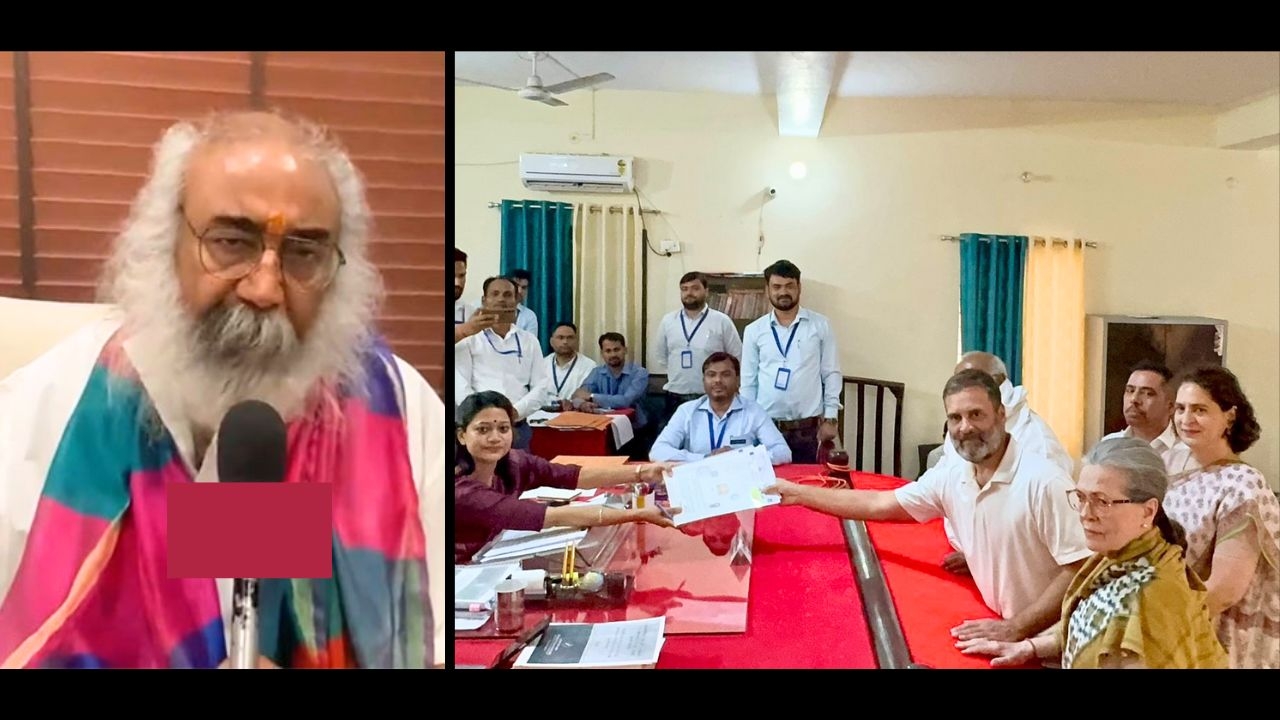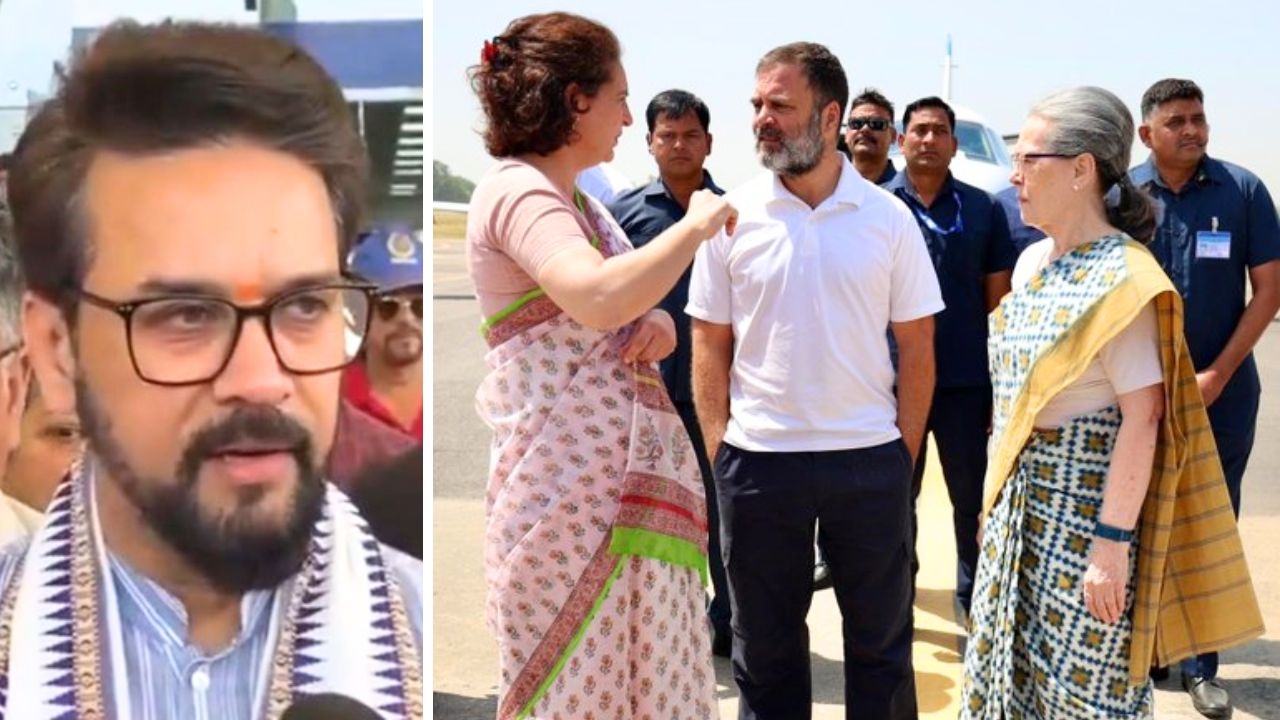To counter BJP's cow narrative, Gujarat Dalits demand Aadhar for bovines
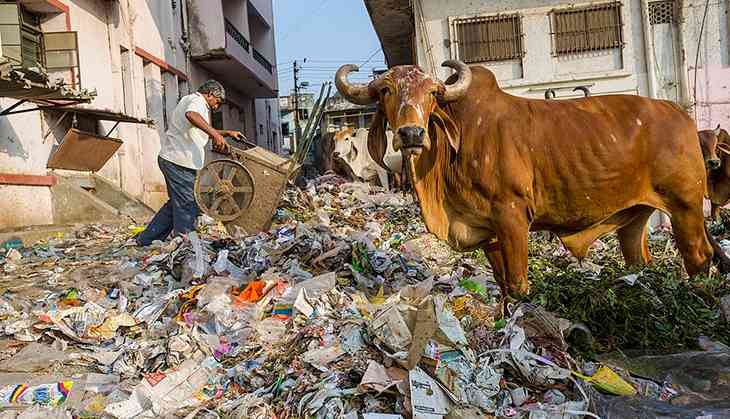
The cow continues to hog the headlines on a daily basis. Now, with the Central government having reportedly proposed to the Supreme Court to provide an Aadhar-like unique identification number to cows to prevent cow smuggling, a similar demand is being raised by Dalits in Gujarat, albeit with a different motive.
Dalits in Gujarat, the home state of Prime Minister Narendra Modi and BJP president Amit Shah, want an Aadhar card for cows, to ensure the bovines do not die after consuming plastics or contaminated fodder.
They have made the demand to counter the BJP and the state government's propaganda on cow protection, while pointing out that more cows in the state die because of government callousness than being slaughtered, as is made out by cow vigilante groups and Hindutva organisations to target minorities and Dalits.
Where is the fodder?
Natubhai Parmar, who heads the Navnirman Sarvjanik Trust working for Dalit rights, told Catch that he, along with representatives of several similar organisations, plans to organise a mega event on the theme of 'Jiv matra karuna ne patra' (Living beings need compassion) on 10 May at Samvidhan Circle in Surendranagar.
“May 10 is celebrated as Karuna Divas (compassion day), as it marks the Buddha disseminating the concept of Karuna and preventing Jeev Hinsa (violence against animals). We are expecting thousands of representatives from the Dalit community, as well as pastoral communities like the Rabaris and Maldharis. We will also be inviting all the MPs and MLAs from Gujarat to the event,” he said.
The organisers plan to install a replica of a cow that will be six feet long and eight feet tall. It's stomach will be filled with plastic, to make the visitors aware of how cows in Gujarat are perishing because of consuming plastics.
“We want to highlight that how right from the time of independence, successive governments have just talked about cow protection, a concept that has remained confined to paper, while people have been harassed by the authorities and vigilantes in the name of cow protection. We are demanding that the government open fodder depots in every village and distribute fodder per bovine unit, so that cows are not forced to consume plastics or other forms of trash. We also want that a postmortem be done on every cow that dies, so that the cause of death is identified. In most of the cases, it will be plastics,” said Parmar.
Dalit activists also want that the male calf be given as much care as the female among the bovine progeny. “All the 182 MLAs of Gujarat are responsible for the pitiable condition of cows in the state. They have just made tall claims, issued strong statements, and even formulated tough laws including the recent one, making cow slaughter punishable with life imprisonment. There is very little they have done on the ground,” said Parmar.
Gujarat has also become notorious for cattle deaths due to contaminated fodder. Such instances keep on repeating at regular intervals. Observers say that neither the cow vigilantes nor the Hindutva groups have ever raised a noise following these deaths, which have happened adjacent to industrial estates and even at pilgrimage centres like Dakor. Last year saw the deaths of 32 cows in Dakor and 25 in Palitana. In 2015, there were 102 cows that reportedly died at a 'gaushala' on the outskirts of Vadodara after consuming toxic fodder.
Pastoral land handed over to industry?
The proposed sammelan on 10 May will once again see the Dalits and pastoral communities raising the contentious issue of depleting Gauchar (pastoral) lands in villages. There have been allegations over the last several years that the government has handed over the Gauchar lands to industrialists at throwaway prices, while farmers and pastoral communities have had to suffer. The pastoral communities and others fighting for the Gauchar land rights have been pointing out that it is the transfer of lands to the industrialists that has led to shortage of fodder and cattle turning to eating plastics on the streets.
Reports have quoted Vallabh Kathiria, chairman of Gujarat Gauseva and Gauchar Vikas Board, saying that all the cattle in the state are registered. He has said that district collectors make adequate arrangement for fodder whenever there is a shortage. He has reportedly contended that only 20% Gauchar land has been given for industrial, purposes while the remaining is available for cattle breeding.
Congress leader Manish Doshi had recently asked the state government to come clear on the matter of 3.77 crore square metres of revenue land handed over to industries and private enterprises at cheap rates over the last five years. He had claimed that the government has allocated 4.10 lakh square metres of Gauchar land to private entities at throwaway prices.
Sagar Rabari, general secretary of farmers' organisation Khedut Samaj, said: “The handing over of Gauchar lands to the industry has been going on since 2000, but the government has never come out clearly on how much Gauchar land it has handed over to the industry. I have filed applications under the Right to Information (RTI) Act twice on the issue, and have got ambiguous responses. The situation is worse in Saurashtra and Kutch.”
First published: 25 April 2017, 16:58 IST


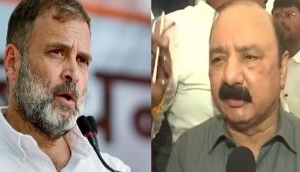
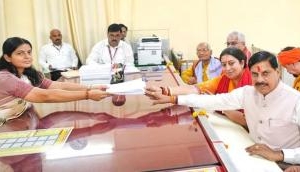
_with_Kailash_Vijayvargiya_251452_300x172.jpg)
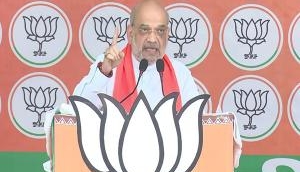
![BJP's Kapil Mishra recreates Shankar Mahadevan’s ‘Breathless’ song to highlight Delhi pollution [WATCH] BJP's Kapil Mishra recreates Shankar Mahadevan’s ‘Breathless’ song to highlight Delhi pollution [WATCH]](http://images.catchnews.com/upload/2022/11/03/kapil-mishra_240884_300x172.png)

![Anupam Kher shares pictures of his toned body on 67th birthday [MUST SEE] Anupam Kher shares pictures of his toned body on 67th birthday [MUST SEE]](http://images.catchnews.com/upload/2022/03/07/Anupam_kher_231145_300x172.jpg)



